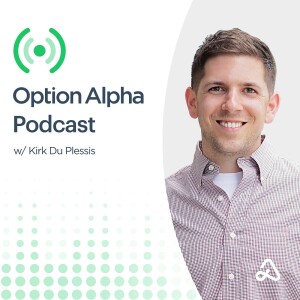
- Podcast Features
-
Monetization
-
Ads Marketplace
Join Ads Marketplace to earn through podcast sponsorships.
-
PodAds
Manage your ads with dynamic ad insertion capability.
-
Apple Podcasts Subscriptions Integration
Monetize with Apple Podcasts Subscriptions via Podbean.
-
Live Streaming
Earn rewards and recurring income from Fan Club membership.
-
Ads Marketplace
- Podbean App
-
Help and Support
-
Help Center
Get the answers and support you need.
-
Podbean Academy
Resources and guides to launch, grow, and monetize podcast.
-
Podbean Blog
Stay updated with the latest podcasting tips and trends.
-
What’s New
Check out our newest and recently released features!
-
Podcasting Smarter
Podcast interviews, best practices, and helpful tips.
-
Help Center
-
Popular Topics
-
How to Start a Podcast
The step-by-step guide to start your own podcast.
-
How to Start a Live Podcast
Create the best live podcast and engage your audience.
-
How to Monetize a Podcast
Tips on making the decision to monetize your podcast.
-
How to Promote Your Podcast
The best ways to get more eyes and ears on your podcast.
-
Podcast Advertising 101
Everything you need to know about podcast advertising.
-
Mobile Podcast Recording Guide
The ultimate guide to recording a podcast on your phone.
-
How to Use Group Recording
Steps to set up and use group recording in the Podbean app.
-
How to Start a Podcast
-
Podcasting
- Podcast Features
-
Monetization
-
Ads Marketplace
Join Ads Marketplace to earn through podcast sponsorships.
-
PodAds
Manage your ads with dynamic ad insertion capability.
-
Apple Podcasts Subscriptions Integration
Monetize with Apple Podcasts Subscriptions via Podbean.
-
Live Streaming
Earn rewards and recurring income from Fan Club membership.
-
Ads Marketplace
- Podbean App
- Advertisers
- Enterprise
- Pricing
-
Resources
-
Help and Support
-
Help Center
Get the answers and support you need.
-
Podbean Academy
Resources and guides to launch, grow, and monetize podcast.
-
Podbean Blog
Stay updated with the latest podcasting tips and trends.
-
What’s New
Check out our newest and recently released features!
-
Podcasting Smarter
Podcast interviews, best practices, and helpful tips.
-
Help Center
-
Popular Topics
-
How to Start a Podcast
The step-by-step guide to start your own podcast.
-
How to Start a Live Podcast
Create the best live podcast and engage your audience.
-
How to Monetize a Podcast
Tips on making the decision to monetize your podcast.
-
How to Promote Your Podcast
The best ways to get more eyes and ears on your podcast.
-
Podcast Advertising 101
Everything you need to know about podcast advertising.
-
Mobile Podcast Recording Guide
The ultimate guide to recording a podcast on your phone.
-
How to Use Group Recording
Steps to set up and use group recording in the Podbean app.
-
How to Start a Podcast
-
Help and Support
- Discover

50: Is The Stock Market Random Or Predictable? The Final Debate On Efficient Markets
Show Notes: http://optionalpha.com/show50
One of the foundational elements of my personal trading style with options is the belief that the stock market is random. Random meaning that we can't gain an edge picking a direction. And for years, this assumption has been more or less accepted by the public and academia.
In the last couple months, the theory or hypothesis around random financial markets has repeatedly been challenged, which is a good thing. A countless number of people have tackled the issue and published their findings on random market behavior. I wish I could link them all up here, but it's just not possible nor realistic. Therefore, my goal on today's show is simply to present what I believe to be the best research on the topic of market efficiency and predictability.
Admittedly, I scheduled this show as a follow-up to Show 49 where we backtested 15 different option buying strategies during the last market crash. And the reason is that I wanted you to recognize how much "perfect timing" had an impact on the results of that case study. In Show 49, we only backtested the put buying strategies for two years assuming you were 100% right in calling the impending market crash.
If you expanded the timeline out to 3 years on either end - i.e. you're not a market wizard and can't time the crash precisely, then each and every scenario lost money. In fact, each backtested put buying strategy only made money during Sep & Oct of 2008 at the height of the collapse. During all of 2007, you would have lost on average 56% of your capital waiting for the crash to happen.
Be honest with me now; how likely is it that you would have actually held through a 56% drop in your account balance before you called it quits? And that was assuming you had near perfect market timing! Still, the traders who sold options didn't try to time the market, eventually won. Sure, they may have experienced a draw down in 2008 if there were not positioned correctly, but even still they would have made money trading through the crash.
As you listen to the show, I want to challenge you to ask yourself the following pressing questions about investing; Is the stock market random? If it is, why should we care so much about picking a random direction? If it isn't, and indicators are present to predict future moves, can I even uncover the non-random patterns? How much time or money would it take to profit under the assumption of randomness vs. non-randomness? What trading strategies fit my personal style the best?
More Episodes
Create your
podcast in
minutes
- Full-featured podcast site
- Unlimited storage and bandwidth
- Comprehensive podcast stats
- Distribute to Apple Podcasts, Spotify, and more
- Make money with your podcast
It is Free
- Privacy Policy
- Cookie Policy
- Terms of Use
- Consent Preferences
- Copyright © 2015-2025 Podbean.com




